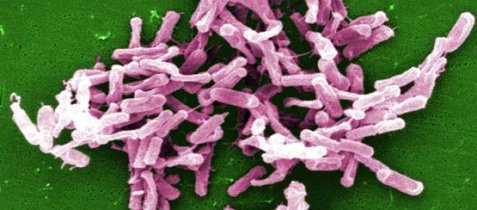
Clostridium difficile is a bacterium that produces toxins which can kill intestinal cells and cause severe inflammation of the intestinal walls. Mild infections from this bacterium can cause diarrhea, while severe infections can cause death. Over time, C. difficile infections have gotten worse. As one medical resource states:1
C. difficile infection has transformed from a nuisance into a potentially life-threatening illness with an attributable mortality rate of up to 16.7%.
The typical treatment for severe cases of C. difficile infection is a round of strong antibiotics, but that doesn’t always work. A significant number of patients end up experiencing one or more recurring infections within 60 days.2 As a result, medical researchers are trying to come up with new ways to treat this infection.
In a recent study published in the New England Journal of Medicine, researchers tested an…interesting…approach. They took 43 patients who had a C. difficile infection and split them into three groups. The first received the standard antibiotic treatment (in this case, 500 milligrams of vancomycin four times per day for 14 days). The second received the standard antibiotic treatment plus a bowl lavage 4 or 5 days into the treatment. In case you aren’t familiar with the term, a bowel lavage involves flushing out the intestines. It is usually done to prepare the intestine for medical imaging. The third group was given a shortened round of antibiotics (500 milligrams of vancomycin four times per day for 4 or 5 days), a bowel lavage, and then a poop transplant.
Yes, you read that right. After the bowel lavage, the patients were given a mixture of water, salt, and the feces from a healthy donor. Now don’t worry. They didn’t have to eat or even smell the stuff. It was sent into their intestine through a sterile tube that went up the nose, down the esophagus, through the stomach, and into the start of the small intestine. While the process sounds incredibly gross, the results were amazing!
The study followed the patients for 10 weeks after the treatment, and of the 13 patients who received the standard treatment, 9 (69%) experienced a recurring infection. Of the 13 patients who received the standard treatment plus the bowel lavage, 10 (77%) experienced a recurring infection. However, of the 16 patients who received the short round of antibiotics, the bowel lavage, and the fecal transplant, only three (19%) experienced a recurring infection. Those three patients received a second fecal transplant, and only one of them ended up continuing to experience a recurring infection!3
So this new treatment was significantly better than the standard treatment, and the reason wasn’t the bowel lavage. Instead, it was because the patients were getting something beneficial from the donor’s feces. What were they getting? Well, as a part of the study, the researchers analyzed the bacterial DNA found in the patients’ feces before and after the fecal transplant. What they found was that prior to the treatment, the patients had a very low diversity of bacterial species living in their intestines. However, after the transplant, the diversity of their intestinal bacteria was the same as that of the healthy donors.
So the researchers conclude that the fecal transplant gave the patients a healthy diversity of intestinal bacteria, and those bacteria were able to effectively fight off any C. difficile that had survived the antibiotics! Just over a year ago, I discussed a study that showed patients who still had an appendix were significantly less likely to experience a recurring C. difficile infection. This is because far from being a vestigial organ, the human appendix serves as a safe haven for the intestinal bacteria that are designed to live in people. As a result, people with an appendix are able to recover a healthy mix of intestinal bacteria quickly after an intestinal illness. I would be interested in knowing how many of the patients in this fecal transplant study had an appendix and what the outcomes were for those patients. Unfortunately, the paper doesn’t mention this at all.
This study is just one more indication of how important the bacteria that live in our bodies can be to us. It also lends more evidence to the creationist view that bacteria were originally created as beneficial organisms. Those that are now pathogenic are unfortunate consequences of sin entering the world at the Fall.
REFERENCES
1. Problem-based Approach to Gastroenterology and Hepatology, edited by John Plevris and Colin Howden, Wiley Blackwell 2012, p. 76.
Return to Text
2. Pepin J, Routhier S, Gagnon S, and Brazeau I., “Management and outcomes of a first recurrence of Clostridium difficile-associated disease in Quebec, Canada,” Clinical Infectious Diseases 42:758-764, 2006.
Return to Text
3. Els van Nood, et. al., “Duodenal Infusion of Donor Feces for Recurrent Clostridium difficile,” New England Journal of Medicine doi:10.1056/NEJMoa1205037, 2013
[Note that the total number of patients in the discussion of the results adds only to 42 because one patient was excluded due to certain clinical characteristics.]
Return to Text

Imagine being able to say that that you were a poop donor. Wow.
And imagine if we had Poop drives and poop buses.
My immaturity aside, I found this post to be very fascinating. Thanks Dr. Wile!
I saw an interesting article that I also talked about on my blog.Scientists have developed artificial poop so as to avoid the “yuck” factor associated with fecal transfusion.They also claim that artificial poop is more effective than natural one because microbial growth can be monitored.
Thanks for posting that, Justice! For readers who are following the thread, here is the article on Justice’s Blog, and here is the Medical News Today article about it.